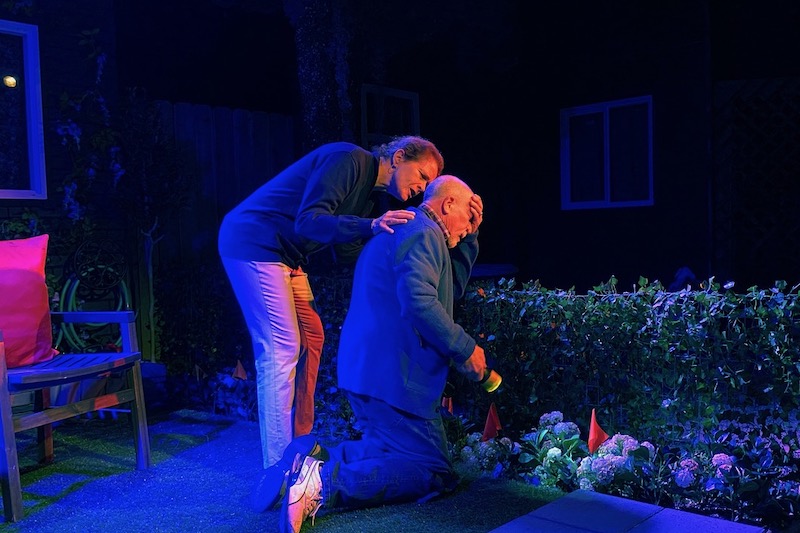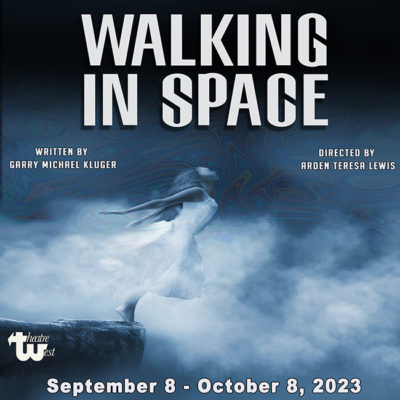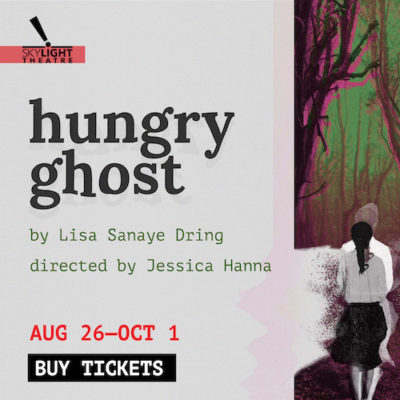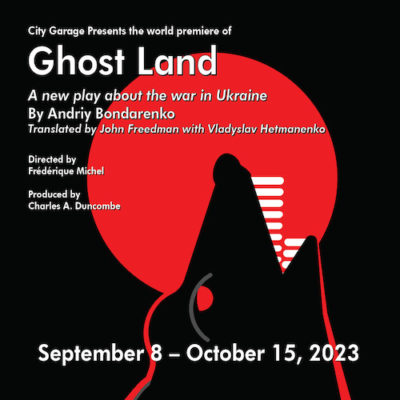Native Gardens
Reviewed by Martίn Hernández
Ophelia’s Jump
Through May 7
RECOMMENDED
Written in 2016, the twilight of the Obama administration, playwright Karen Zacarίas’s thought-provoking comedy portrays a “border dispute” between Latino Millennials and White Boomers. Their altercation seems quaint in the wake of the Trump years, but even without the MAGA madness, Zacariás’s clever mix of jokes and sly social/political commentary packs a zestful punch.
The del Valles are new homeowners in an upscale Washington, D.C., neighborhood. Eight months pregnant and finishing her dissertation, Tania (Stella Ramírez) dreams of reviving their deteriorating yard with plants indigenous to the region, her “native garden.” Pablo (Alejandro Jiménez) dreams of becoming a partner at his new law firm — “We can do American WASP success, or at least imitate it” — and in what he feels is a career-boosting move he has agreed to host a company barbecue, heightening Tania’s pre-natal and post-grad anxiety.
Welcoming the newcomers with wine, chocolate, and hilariously clueless racial faux pas are their next-door neighbors, the Butleys. Virginia (Jenny Buchanan) works in the defense industry and Frank (Jeff Sable) is retired and lovingly tends to his garden, where the flora is gorgeous but invasive to the area. A friendly feud ensues, with Tania committed to organic methods and trying to convert Frank, a committed purveyor of pesticides. When a survey, however, reveals that the Butley’s property, especially his beloved garden, encroaches onto the del Valle’s land —“They have documents. Do we?” Frank ironically laments to Virginia – the couples go to the domestic equivalent of DEFCON 1.
As their backyard battle escalates, the characters’ innate sociability comically gives way to greed and inner contradictions. Virginia, as a woman in a male-dominated field, may sympathize with Pablo’s plight at a lily white firm (“Are you a token?” she blithely asks). Yet her material interests and white privilege override any feminist solidarity with Tania, playing a “Karen” card to protect her homestead. Meanwhile, hapless Frank’s obsession for tending formerly idle soil is a metaphor for the European lust for land that justified the violent colonizing of Indigenous people’s “unused” territory.
Pablo grew up in Chile with plenty of money, mansions, and maids, but was disowned when he married the “peasant” Tania, a working class Mexican American from New Mexico. But his reaction to the potential of increased property values hilariously revives his bourgeois tendencies — was his family on Team Pinochet? While Tania initially tries to stifle Pablo’s reasoning for his extreme methods – “They’re Republicans,” he declares. “They’re still people” she responds — homeownership could change that and turn her lefty leanings into comprador aspirations for the so-called ”American Dream,” by any means necessary.
Despite some opening night jitters, the cast rose to the occasion and salvaged some awkward moments, a testament to Beatrice Casagrán’s solid direction. Ramírez’s Tannia and Buchanan’s Virginia – “Call me Ginny” – make for robust opposing foils as they try to outmaneuver each other. Meanwhile, Jiménez’s Pablo and Sable’s Frank, while adversaries, still find a budding camaraderie as spouses to formidable women. And each actor credibly displays the joyful and frustrating dynamics of a strong marriage. Casagrán’s backyard set is a wonder on the small stage – it even has a working garden faucet – though Frank’s flower bed could have shown more flourish.
Ophelia’s Jump, 2009 Porterfield Way, Suite H, Upland; Thurs.-Sat., 8 pm; Sun., 4 p.m.; dark on May 4; through May 7. https://opheliasjump.org/. Running time 90 minutes, plus 15 minute intermission.











